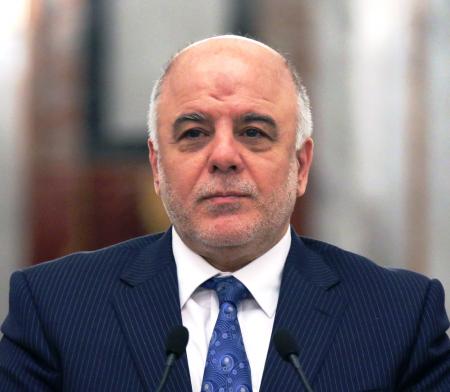Iraqi Prime Minister Haider Al-Abadi penned an opinion piece in the Wall Street Journal on September 8, 2015 in which he addressed the recent protests in Iraq and the steps that the government of Iraq is taking to “bring about meaningful change that will end the cycle of nepotism and corruption that has stifled our country’s ability to meet its full potential.”
The Prime Minister challenged three perceptions which are commonly held by outside observers: that Iraq’s communities lack a common sense of identity; that the country is irredeemably divided along ethno-sectarian lines; and that Iraq is not conducive to democracy.
“Iraqis of all backgrounds have mobilized under one flag—calling for sweeping reforms that would, in essence, fulfill the democratic aspirations that are enshrined in our Constitution. The demands cut across ethno-sectarian lines and seek to raise living standards for all Iraqis,” wrote Prime Minister Al-Abadi. “Our government is responding not with repression but with far-reaching reforms intended to reinforce a program of political and economic renewal,” he added.
The Prime Minister elaborated on radical measures recently adopted by the Iraqi government to address the fiscal crisis that was exacerbated by an overreliance on oil revenues, including broadening the tax base and making billions of dollars’ worth of investments in the industrial, housing and agricultural sectors to stimulate growth in Iraq’s economy. The government is also offering incentives for entrepreneurship and domestic and international private investments.
“With this leaner government we will rebuild infrastructure, including roads, highways, hospitals and schools. Another aim is to reduce unemployment, especially among the young people who may be attracted to extremism, and restore basic public services such as electrical power and safe drinking water. We will also be better able to assist the millions of internally displaced persons who have fled Daesh’s brutality and barbarism.”
Prime Minister Al-Abadi urged Americans and other international partners, who share an interest in defeating Daesh and building a stable and democratic Iraq, to help by offering expertise in streamlining bureaucracy, combating corruption and improving public services.
“Today, a historic opportunity for national reconciliation presents itself. If all parties can commit to abiding by the democratic process and reject violence as a means of extracting political gains, then it may be possible to reach a comprehensive settlement that could secure a prosperous future for successive Iraqi generations. Together, we can prove that peaceful reforms can prevail over violent extremism and ensure that the sacrifices of the past 12 years were not in vain,” Prime Minister Al-Abadi concluded.
To read Prime Minister Al-Abadi’s full opinion piece at the Wall Street Journal, click here.

